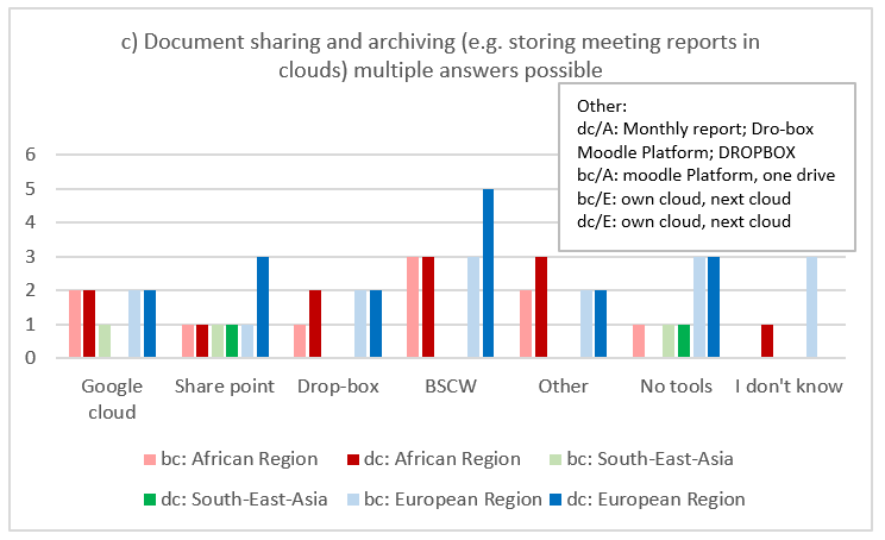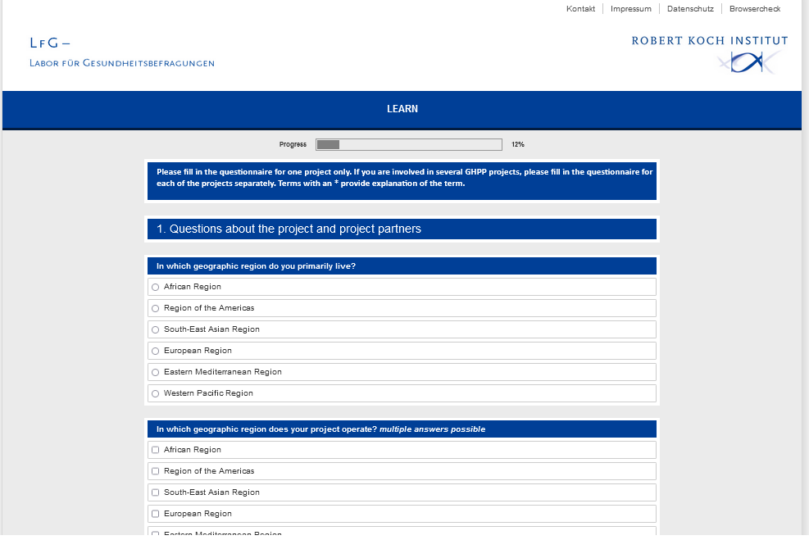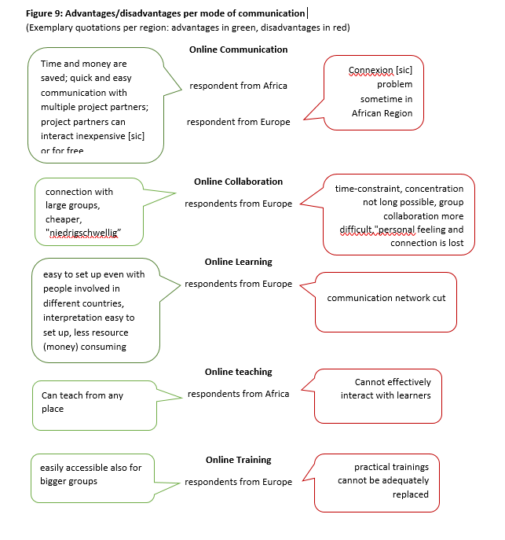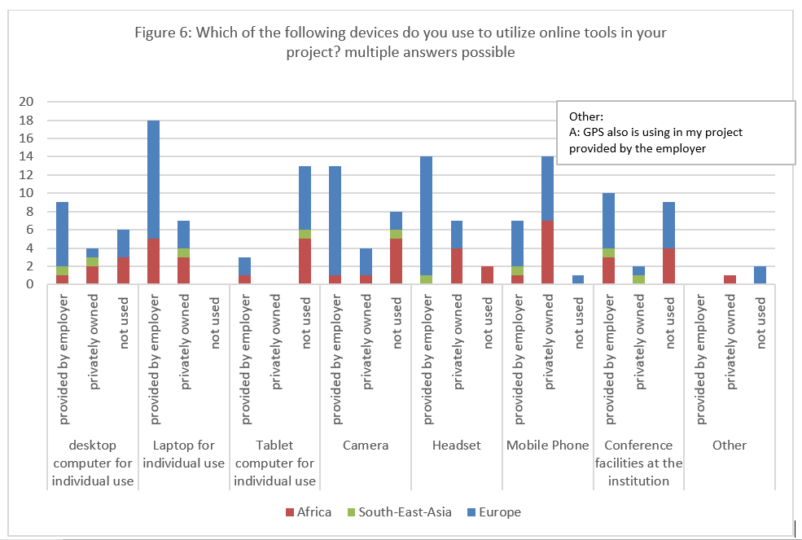GHPP Survey on the Use of Online Tools
To learn more about the use and experiences of online tools in the GHPP projects before and during the pandemic, a survey was conducted as part of the GHPP project LEARN, which is led by the Federal Institute for Drugs and Medical Devices (BfArM) and supported by the GHPP office at the Robert Koch Institute (RKI).
The objectives of the survey were:
- To collect information on the use of online tools for communication and project work before and during the pandemic
- To capture experiences of users with online tools, as well as advantages and challenges in the implementation of project activities using online tools
- To assess needs, consider feasibility and explore potential benefits of a harmonized online environment for GHPP projects in the second phase of funding
Methodology
The data collection was carried out by means of an online questionnaire and included 17 questions grouped into 5 areas of interest: information on the project and project partners; the use of online tools for communication and project activities before and during COVID-19; user experiences with online tools for communication, collaboration, learning, teaching and training; expected future use of online tools; and user experience with e-learning platforms The survey was sent to 110 project contacts from Germany and in the partner countries from 34 GHPP projects that started in 2020 or earlier and ran from 17 February 2022 until 14 March 2022.
Results
Sample description and relevance
With 24 completed questionnaires, the overall response rate was 22%. 58% of respondants reside in European countries (45% of invitees reside in Europe), whereas 33% primary live in Africa (49% of invitees reside in Africa) and 9 % in South-EastAsia (6% of invitees reside in South-EastAsia).
Use of online tools before and during the COVID-19 pandemic
The use of online tools for project management and project activities increased as expected due to the pandemic. Since the beginning of the pandemic, the use of video-web conferencing increased across all regions to replace face-to-face communication.
For document sharing and archiving (e.g. storing meeting reports in clouds), no significant changes could be seen before and during the pandemic. Share point and BSCW were used slightly more often by European respondents, cloud storage such as Drop Box or Google Cloud were equally used by European and Non-European respondents. A significant number of respondents indicated that they do not use online tools to share and archive documents.
Among tools for collaboration, Webex, Zoom and MS Teams were the most commonly used across all regions. These were also the preferred tools for regular synchronous communication.
For teaching and learning, Webex, Microsoft Teams and Moodle were the most commonly used options across all regions. A considerable number of projects did not use any online tools for teaching and learning during the pandemic.
Frequency of usage of online tools
Synchronous communication tools (e.g. project coordination, meetings through video/web-conferencing, telephone conferencing) have become established during the pandemic and will most probably continue to be used by the projects after the pandemic.
For asynchronous communication tools, such as project updates via e-mail and messaging, no changes are expected after the pandemic compared to before the pandemic. Document sharing and archiving tools are likely to be used after the pandemic. The use of collaboration tools increased during the pandemic. Tools for learning and teaching were also used more, tools for (practical) training were rarely used.
Devices used to utilize online tools
In Europe, laptops were provided by the employer in 7 out of 14 cases, desktop computers in 13 out of 14 cases. In Africa, this was only the case in 1 out of 8 and 5 out of 8 cases respectively. Thus, project staff in Africa most likely had to rely on their private devices more often.
Overall experience with online tools
92% of respondents indicated that their overall experience with online tools for communication, collaboration, learning, teaching and training was excellent, very good or good. 67% of respondents indicated that their opinion of online tools has also improved since they started their project. For 21%, their opinion did not change on online tools and for 8% it changed towards the negative.
Main advantages of using online tools
The most frequently mentioned benefits of online tools were cost and time efficiency. Easier access to online conferences and stakeholders was further mentioned, especially by African project representatives. Flexibility, scalability and simultaneous processing of documents were also mentioned as advantages.
Main disadvantages of using online tools
All projects stated that deeper and more meaningful conversations are possible when meeting face-to-face and that this is especially important in the beginning of a partnership. Respondants mentioned the lack of informal exchange and possibilities to socialize as well as problems in staying focused as disadvantages. Regarding training and learning, both European and non-European participants indicated that it was more efficient to carry out the practical part of the trainings in person. The most commonly mentioned disadvantage, especially from African partners, was the problem of network connectivity.
Challenges and limitations using online tools
The significant challenge of internet connectivity was also clearly raised when asked about challenges. 7 out of 8 African respondents and 12 out of 14 European respondents mentioned that an unstable internet connection always, often or sometimes occurs; the same goes for a stable power supply. Both make reliable interaction significantly more difficult. Other challenges mentioned were institutional restrictions, language requirements and lack of training and personal support.
A final evaluation of the survey will soon be shared with all participating projects in the form of a survey report.
More information about GHPP LEARN can be found here.
Date: July 2022






